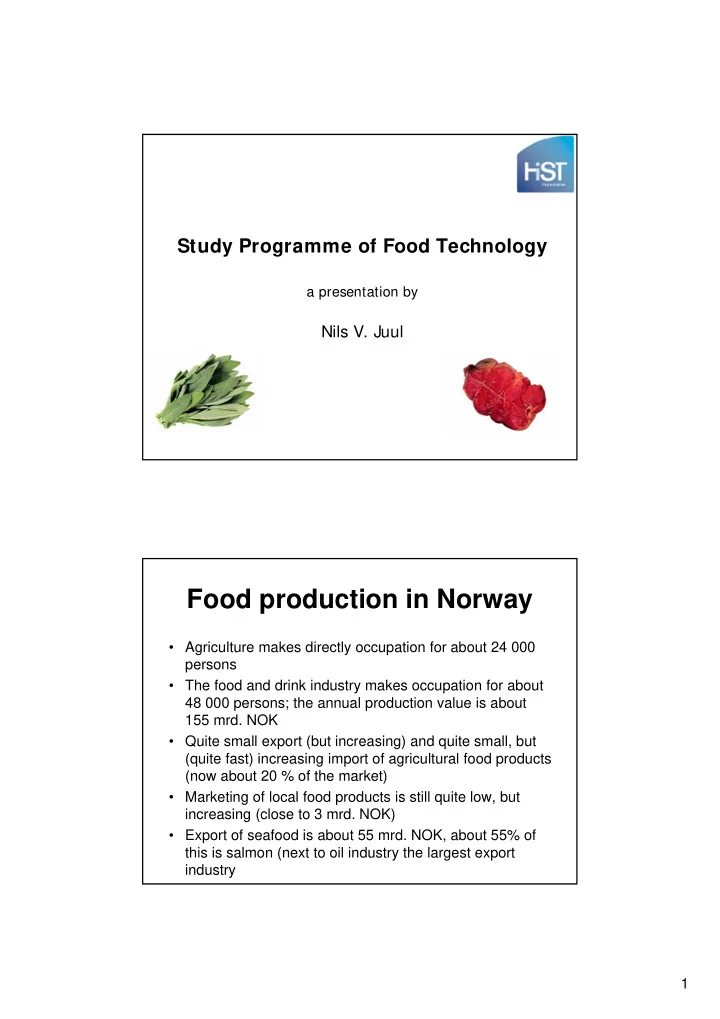

Study Programme of Food Technology a presentation by Nils V. Juul Food production in Norway • Agriculture makes directly occupation for about 24 000 persons • The food and drink industry makes occupation for about 48 000 persons; the annual production value is about 155 mrd. NOK • Quite small export (but increasing) and quite small, but (quite fast) increasing import of agricultural food products (now about 20 % of the market) • Marketing of local food products is still quite low, but increasing (close to 3 mrd. NOK) • Export of seafood is about 55 mrd. NOK, about 55% of this is salmon (next to oil industry the largest export industry 1
Industry/enterprise contact connected to the study • Advice – Members in boards and commities – Seeking advice outside the college when considering changes in the study • Activities within several subjects – Guest lecturers from food industry, machinery or equipment suppliers, food authorities, ideal – and industrial organisations etc. – Study visits/excursions to industry, laboratories etc – Examples for problem based educational activities – Student practice placement (Internship) – Bachelor thesis Other external activities • Other education and shorter courses • Research-based competence brokering • Hospiticing of personel - – From collage to enterprise – From enterprise to college • College is taking part in groops and networks for development of region or professional sector • About ten years ago we made the initiatives for establishing the idieal regional food organisation - Oi! Trøndersk Mat og Drikke AS • Internationalisation (students/teachers in and out; organisations/companies as guest lecturers; EDUFOOD, cooperating project with Balkan institutions) 2
Research-based competence brokering • Research-based brokering has two equal goals: – To promote greater focus on R&D activity in companies with little or no R&D experience in order to increase their internal innovative capacity, thereby enhancing value creation and competitiveness (stimulation of R&D demand) – To strengthen the role of the research institutes as partners in collaboration with industry (stimulation of R&D supply). Other education and shorter coarses • Vocational teacher education; cooperation with the teaching department of NTNU educating teachers (3 years bachelor) for the food area in secondary school (bakers, cooks, bakers etc.) as a combined distance- and on campus teaching) • Participation in a two year education in applied Food Technology (combined distance- and on campus teaching; mainly for key employees in food industries) • Specially designed education and shorter coarses for food industry • Specially designed education and shorter coarses for small scale food produsers 3
Recommend
More recommend